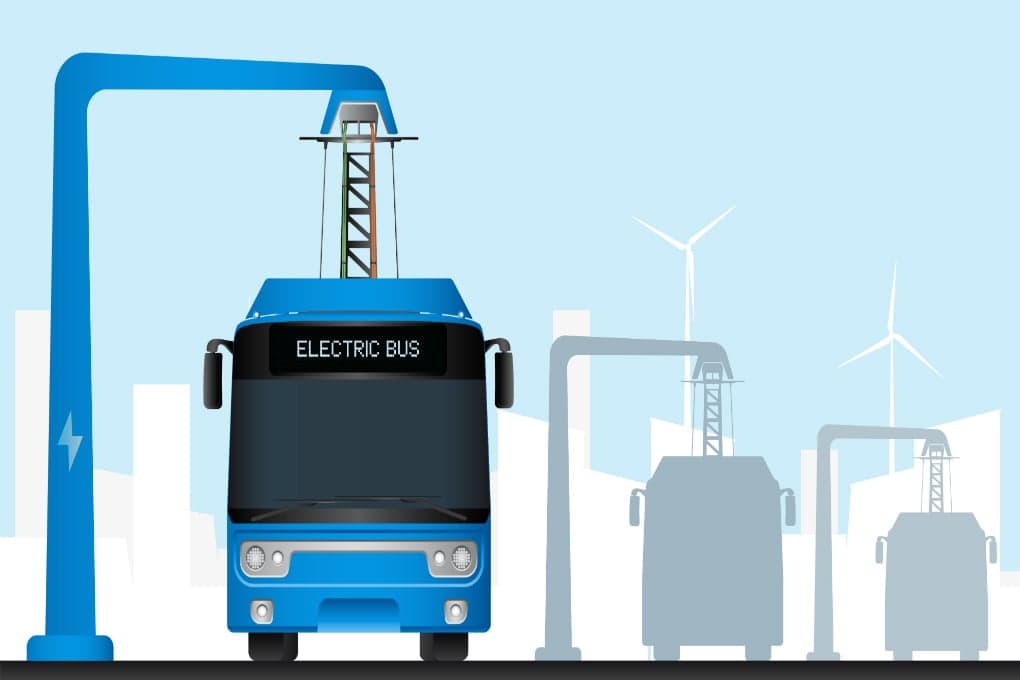MHI approved subsidies for 9,800 e-buses in Bengaluru and Hyderabad under the PM E-DRIVE scheme
The PM E-DRIVE scheme aims to deploy 14,028 e-buses across nine metro cities by FY26
The government proposed duty exemptions on key minerals to boost domestic EV battery production
The ministry of heavy industries (MHI) has reportedly approved subsidies for 9,800 e-buses in Bengaluru and Hyderabad under the PM E-DRIVE scheme.
According to a Mint report, citing people familiar with the matter, the Centre has approved Bengaluru’s demand for 7,000 e-buses and Hyderabad’s demand for 2,800 such buses.
This consists of 70% of the government’s plan to subsidise procurement of 14,028 e-buses in nine metro cities by FY26 under the PM E-DRIVE scheme.
Other cities covered under the scheme include Delhi, Mumbai, Kolkata, Chennai, Ahmedabad, Surat and Pune.
The report further said that the MHI is also awaiting the demand certificates from the other cities. Also, these certificates are necessary for the approval process related to the deployment of electric buses under the PM E-Bus Sewa Payment Security Mechanism (e-PSM) scheme.
It is pertinent to note that the government in September last year introduced the PM E-DRIVE scheme, replacing the erstwhile FAME scheme. This scheme was aimed at promoting EVs in the country and has an outlay of INR 10,900 Cr for two years.
Under the scheme, the government aims to give subsidies and demand incentives worth INR 3,679 Cr for electric two-wheelers (E2Ws), three-wheelers (E3Ws), ambulances, trucks and other emerging EVs.
Besides, it also aims to support 24.79 Lakh E2Ws, 3.16 Lakh E3Ws and 14,028 ebuses.
Earlier this month, the finance minister in her Budget speech announced a National Manufacturing Mission for MSMEs and large enterprises in line with India’s vision to become a global manufacturing hub and strengthen the nation’s manufacturing capabilities in the cleantech space, in particular electric vehicle (EV) ecosystem.
What makes EVs more expensive than vehicles with internal combustion engines (ICE) is the high battery cost component Moreover, India faces resource limitations around the production of critical minerals such as cobalt, nickel, and lithium — crucial for the production of EV batteries. The Economic Survey 2024-25 highlighted that India sources 75% of lithium-ion batteries from China.
Finance Minister Nirmala Sitharaman in the 2025 Budget proposed a duty exemption for cobalt power, lithium-ion battery scrap, lead, zinc and 12 critical minerals. This is expected to give a boost to domestic manufacturing of EV batteries.
Disclaimer
We strive to uphold the highest ethical standards in all of our reporting and coverage. We StartupNews.fyi want to be transparent with our readers about any potential conflicts of interest that may arise in our work. It’s possible that some of the investors we feature may have connections to other businesses, including competitors or companies we write about. However, we want to assure our readers that this will not have any impact on the integrity or impartiality of our reporting. We are committed to delivering accurate, unbiased news and information to our audience, and we will continue to uphold our ethics and principles in all of our work. Thank you for your trust and support.



![[CITYPNG.COM]White Google Play PlayStore Logo – 1500×1500](https://startupnews.fyi/wp-content/uploads/2025/08/CITYPNG.COMWhite-Google-Play-PlayStore-Logo-1500x1500-1-630x630.png)